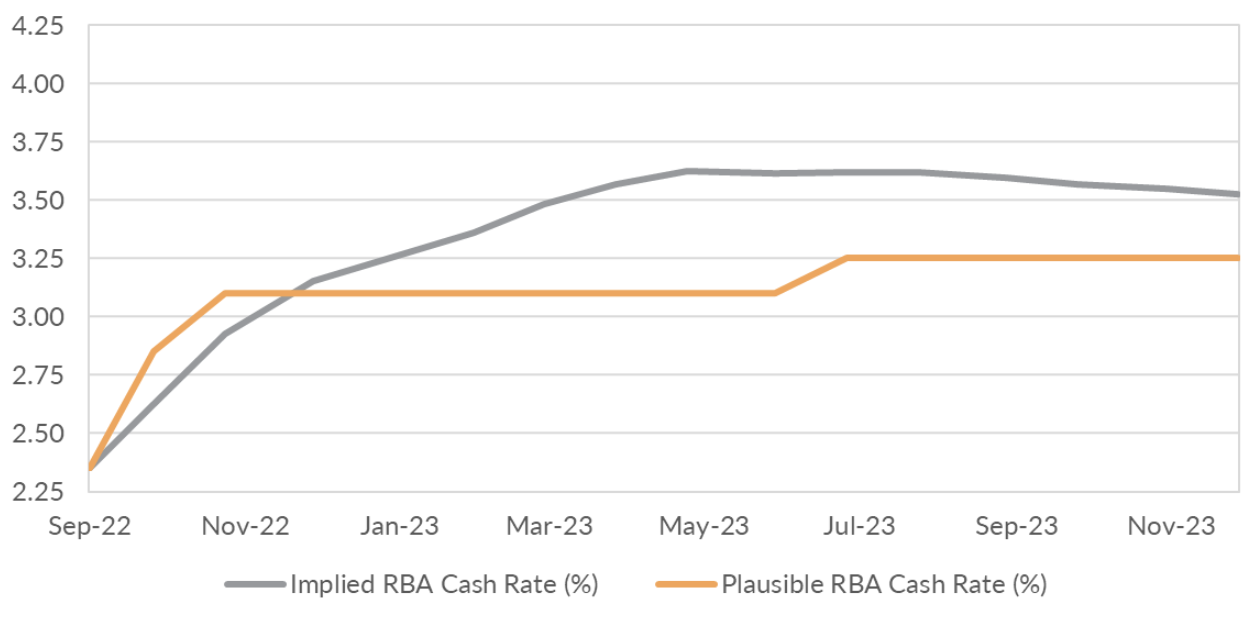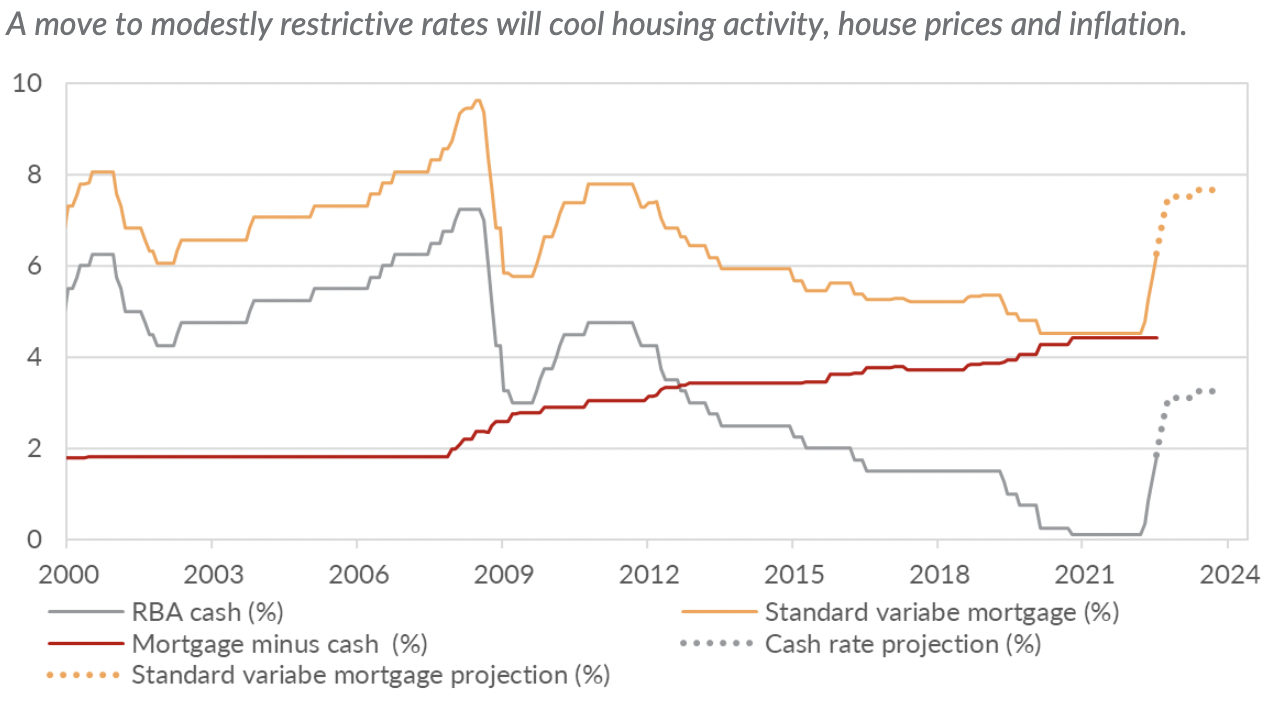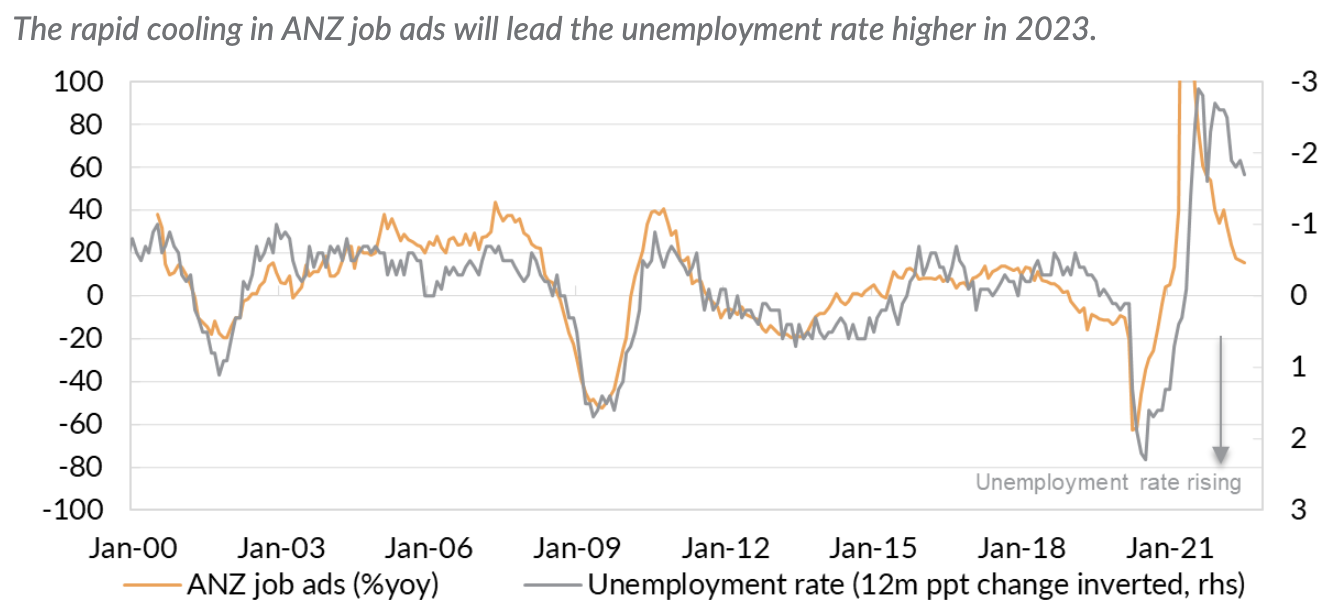Aussie recession unlikely: Why this is bullish for equities and bonds
Australia’s economy is remarkably strong right now. I also argue it has the momentum to carry this strength into year-end. Rates are accommodative, and in this wire, I'll argue why monetary policy needs to tighten. Best of all, I believe this is not a recessionary scenario. After severely damaging its credibility earlier this year, the RBA has a clear playbook for the year ahead and that's a good outcome for Australian assets.
Monetary policy is still accommodative but will move to restrictive
We think the neutral level for the Australian cash rate is around 3.00%. The RBA needs to get rates to the "modestly restrictive" territory. The market is pricing a very restrictive policy rate of above 3.5% by early 2023. But if the RBA follows market pricing, it will cause a recession. No wonder the market is pricing rate cuts by the end of 2023!

We disagree with the market pricing. Instead, we think the RBA will get to that restrictive territory later this year. But then we expect they will pause for a long period. This will be a relatively good outcome for the economy – and not one where recession takes place next year.
Housing will cool, not collapse
A modestly restrictive cash rate will push house prices lower. But we think the consensus view for house prices to fall as much as 20% is overdone. Sure, if the RBA forced market pricing for the cash rate down the throat of the economy, then we could see that type of correction.
But the RBA has no business doing that. Our plausible path for rates described above would take the standard variable mortgage rate to the highest level since 2011.
We also project debt servicing costs will be as high as they have been since the GFC in this scenario. That will restrict housing activity, house prices, household spending, and household borrowing. And that will bring down inflation, allowing the RBA to hike less than the market expects. And allow house prices to decline less than consensus expects – we think 10% is probable.

A recession is neither inevitable nor probable
A 10% correction in house prices will not drive a recession. It would be a welcome cooling in a market that had overheated. The RBA will view that correction as a job well done.
Outside of the housing market, Australia’s economy as a whole is still motoring along. It has been supported by a blistering increase in the terms of trade. Australia has benefited from this income boost and will continue to do so through 2023.
The RBA has taken rates close to neutral, but they are not yet restrictive. When the RBA does move to restrictive policy settings, we expect to see the economy slow to below-trend growth rates. The unemployment rate will initially stop falling and judging by the rapid cooling in ANZ job ads, the unemployment rate will move higher. Modestly higher unemployment will reinforce the RBA’s pause and extend the cycle, delaying recession for some time.

One idea: Buy Australian
In January this year, we moved our Australian equity rating to overweight relative to the US and the rest of the world. Australia’s equity market has outperformed the US through 2022, albeit still delivering negative returns.
We think the shift to a pause in rates from the RBA (and from the US Fed – see here) will allow a resetting of the bearish recession expectations. And that will deliver considerable upside to Australian equity markets through 2023.
Australian government bonds are also looking attractive. The government bond market has priced an aggressive rate hike cycle. Government bonds now offer reasonable income if a recession is avoided. If the RBA does pause, as we expect, a compression in term premia could provide capital gains for investors. On the other hand – if we are wrong and the RBA does hike to a recession, then government bonds at current yields will play a critical role in protecting the downside for investors.
Prepare for the pause
The RBA damaged its credibility early this year by denying rate hikes were needed. It has now pivoted, and the rate hike cycle is moving towards restrictive monetary policy. We expect the RBA will pause at modestly restrictive settings, allowing the Australian economic cycle to extend through 2023.
Australian house prices are going to correct but not collapse in this environment. Importantly, solid economic momentum can prolong the economic cycle through 2023 preventing a recessionary environment. And in this scenario, Australian investors will benefit from exposure to both Australian equities and Australian government bonds.
Never miss an insight
If you’re not an existing Livewire subscriber you can sign up to get free access to investment ideas and strategies from Australia’s leading investors.
And you can follow my profile to stay up to date with other wires as they’re published – don’t forget to give them a “like”.
2 topics

